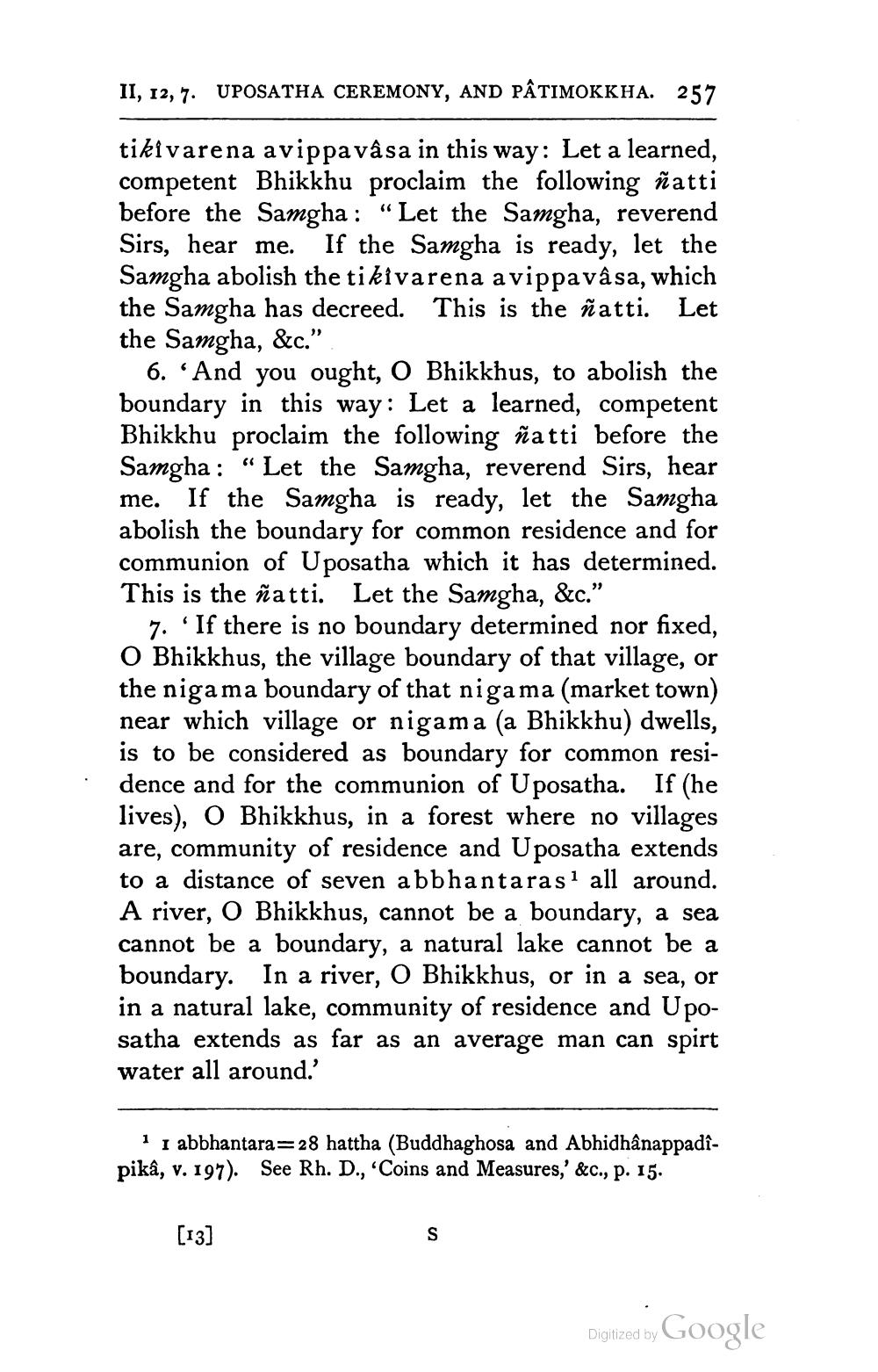________________
II, 12,7. UPOSATHA CEREMONY, AND PÂTIMOKKHA. 257
tikivarena avippavâsa in this way: Let a learned, competent Bhikkhu proclaim the following ñatti before the Samgha : “Let the Samgha, reverend Sirs, hear me. If the Samgha is ready, let the Samgha abolish the ti kivarena avippavâsa, which the Samgha has decreed. This is the ñatti. Let the Samgha, &c.”.
6. “And you ought, О Bhikkhus, to abolish the boundary in this way: Let a learned, competent Bhikkhu proclaim the following ñatti before the Samgha: “Let the Samgha, reverend Sirs, hear me. If the Samgha is ready, let the Samgha abolish the boundary for common residence and for communion of Uposatha which it has determined. This is the ñatti. Let the Samgha, &c."
7. If there is no boundary determined nor fixed, O Bhikkhus, the village boundary of that village, or the nigama boundary of that nigama (market town) near which village or nigama (a Bhikkhu) dwells, is to be considered as boundary for common residence and for the communion of Uposatha. If (he lives), O Bhikkhus, in a forest where no villages are, community of residence and Uposatha extends to a distance of seven abbhantaras? all around. A river, O Bhikkhus, cannot be a boundary, a sea cannot be a boundary, a natural lake cannot be a boundary. In a river, O Bhikkhus, or in a sea, or in a natural lake, community of residence and Uposatha extends as far as an average man can spirt water all around.'
1 1 abbhantara=28 hattha (Buddhaghosa and Abhidhânappadipikâ, v. 197). See Rh. D., 'Coins and Measures,' &c., p. 15.
[13]
Digitized by Google




